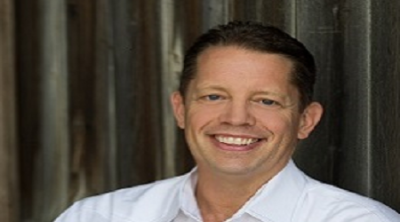I really enjoyed reading the article written by Brad Smith – CEO of Intuit – on vulnerability. “As a younger man, I thought a leader needed to appear flawless” says Brad in the article, and I really resonate with that. I too recall being a young leader and thinking I had to have it all – the right answers, the right strategy, the right way of saying everything, and so on. I thought if you let on that you didn’t know everything or had flaws and made mistakes, you’d look weak. As a guy with a degree in mathematics, the equation was simple: vulnerable = weak.
Brad Smith disagrees with this equation. He says “The truth is that none of us are perfect. Deep down inside, each of us is painfully aware of the chinks in our own armor. Having the strength to express this common truth makes your teams feel better about both you, and them.”
I have come to believe this is true, but I always like to know if there is research to support something like this (it’s the Math geek in me). Well, I am lucky enough to work for a company that does its own research and here are two interesting data points:
- In our study of a leader’s reputation and the impact on engagement and performance, we found that one of the top competencies displayed by leaders with a positive reputation was Humility.
- From our EI360 assessment, the two behaviors most highly correlated with people who had recently received promotions are:
- Ability to admit a mistake
- Ability to listen without jumping to conclusions
Humility, admitting mistakes, truly listening – these are all behaviors of someone who is demonstrating vulnerability. Brad Smith says: “I have found that showing vulnerability does not undercut a leader’s capacity to inspire teams, but rather it enhances it. Role modeling that life is an experiment, openly admitting and learning from your own shortcomings and mistakes creates an environment for others to do the same.”
My guess is it’s the term vulnerable that’s the problem – it just sounds weak. I have to admit that even after 11 years of delivering our Emotional Intelligence programs, the hair goes up on the back of my neck if I think “I need to be vulnerable”. It sounds like I am going to give in or lose something.
I prefer the term humility and I suspect most people would gladly be referred to as someone who has humility. So forget being vulnerable, let’s go with humility as the goal for helping us to become better leaders. So how does on go about demonstrating humility?
Here are some of the key behaviors that make up the Humility competency in our Leadership Reputation program:
- I openly admit when I am wrong, will say “I am sorry”, and take responsibility for my actions
- I am able to laugh at myself and not take myself too seriously
- I openly and graciously share the learning’s acquired from my own failings and hard experiences
- I readily admit when I am overwhelmed and will ask for help
- I willingly use others ideas over my own, say “thank you” and openly give credit for their work
Add to this list: admitting mistakes and listening without jumping to conclusions, and I’d say you’ve got a behavioral guidebook on how to act with humility.
How does one do all those things, especially when there is tension and pressure? For that you’d have to attend one of our training programs!

